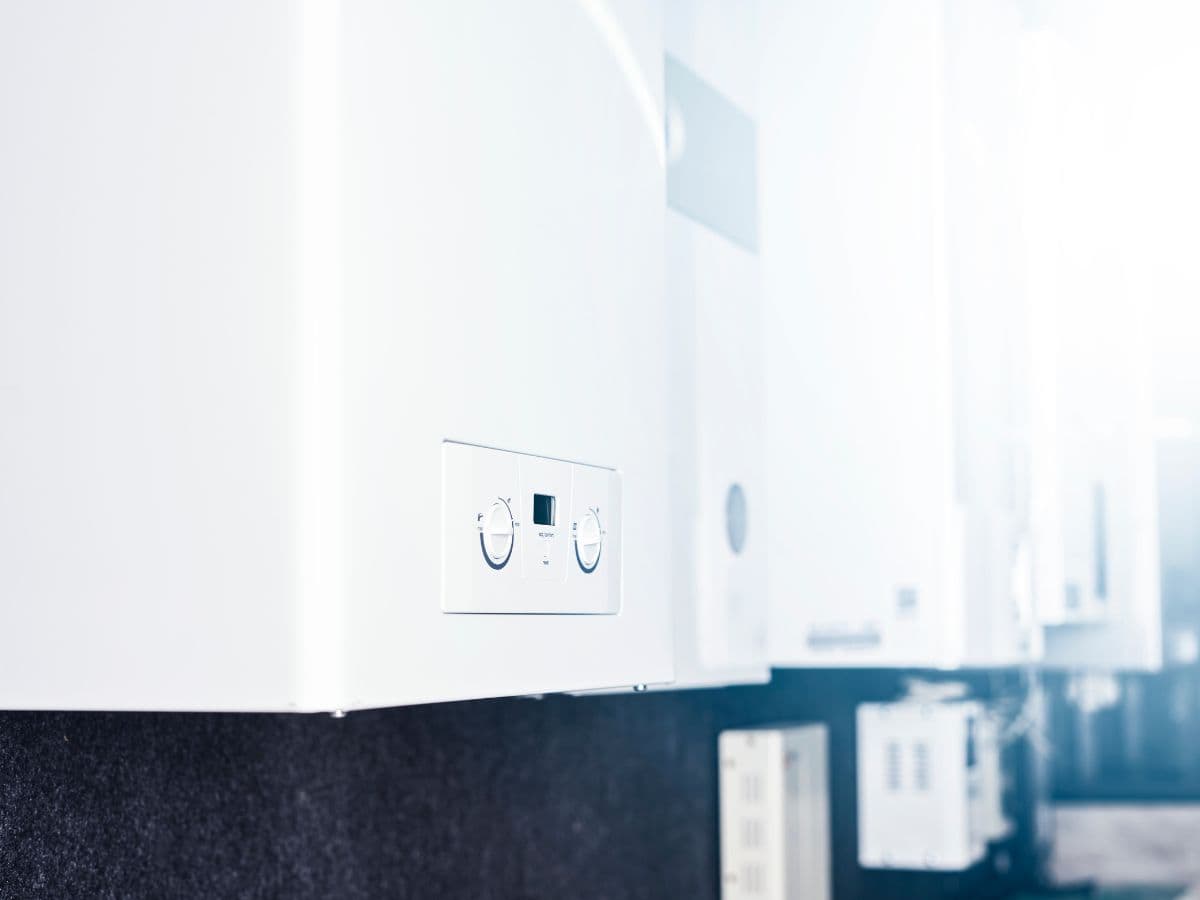In the sunny state of Arizona, deciding on the right heating system for your home can be a warmth-saving game changer, especially when the thermometer takes a dip in the wintertime.
Many American homes rely on HVAC systems for comfort, but when it comes down to choosing between a boiler and a furnace, the decision might leave you scratching your head.
In this post, we’ll heat up the discussion by comparing these two popular systems. Whether you’re replacing an existing unit or deciding which system to install for your new build, knowing the benefits and drawbacks of each will help you choose the right heater for your home.
Key takeaways:
- Boilers are more costly upfront but can provide a lower-cost solution over time.
- Furnaces often allow the integration of a cooling system, whereas boilers only provide heating.
- Both systems require maintenance to stay in optimal condition.
Furnace vs. boiler: What’s the difference?
The biggest difference between a furnace and a boiler lies in how they disperse the heat. Furnaces heat air and distribute it through the home via ductwork, while boilers heat water for steam or hot water systems, and are more common in radiant heating systems.
Here’s a more in-depth look at the two:
What’s a boiler and how does it work?
A boiler heats water to produce either hot water or steam, which is then circulated throughout the home to provide warmth. This circulation can happen in a couple of ways: radiating heat panels in floors and walls for hot water boilers or via steam that travels through pipes to steam radiators.
Unlike furnaces, boilers do not use ducts to distribute heat. Instead, they rely on the circulation of hot water or steam, making them a ductless heating option. This method of heating is known for its ability to provide consistent warmth and comfort in every part of your home, ensuring an evenly heated environment during the colder months.
How do furnaces heat your house?
A furnace is a central heating system that draws cold air from your home and passes through an air filter to remove unwanted particles, like dust. This purified air is warmed up using a heat exchanger and pushed back into the rooms through the ductwork by a fan or blower, effectively raising the indoor temperature.
Your furnace is regulated by a thermostat, which maintains the desired indoor climate by signaling the furnace to turn on or off as needed. Unlike boilers, furnaces can provide both heating and enhance indoor air quality with air filtration, creating a comfortable and healthy living environment.
Pros and Cons of Boilers and Furnaces
When it comes to keeping your homes snug and warm in the winter, you should know the good and the bad of both boilers and furnaces. At River Valley Air Conditioning, we want to ensure our customers make the best choice for their homes. Here are some things to consider before deciding between a boiler or furnace heating system:
Boilers
Pros:
- An efficient heating solution: Boilers provide a seamless and quiet way to keep your home warm. The heat is distributed evenly, ensuring no corner is left cold.
- Lower maintenance: While boilers do require maintenance, their design means fewer moving parts, leading to potentially lower upkeep/repair costs compared to furnaces.
- Long working lifespan: These systems can last 20 years or more with proper care.
- Potential utility bill savings: Boilers can be more energy-efficient, particularly if your home is well-insulated. This efficiency can translate into savings on your monthly utility bills.
- Water heating capabilities: A significant advantage of boilers is their dual-functionality in not only heating your home but also providing your hot water, streamlining your household systems.
Cons:
- Higher investment upfront: The initial cost of installing a boiler can be higher than that of a furnace, making it a little more difficult for some potential buyers.
- Requires professional inspection: To ensure a boiler operates safely and efficiently, your system needs regular professional inspection and maintenance*, adding to the overall cost of ownership.
- Not suitable for every home: Depending on your home’s layout and your personal heating preferences, a boiler might not be the best fit. For instance, homes without room for radiators or a large basement area for the main unit might benefit more from another heating solution.
Furnaces
Pros:
- Cost-effective solutions: With lower installation costs compared to boiler systems, furnaces present an economical choice for homeowners. The opportunity to integrate air conditioning into the unit means summer cooling is sorted without the need for a separate cooling system.
- Maintenance efficiency: Thanks to accessible parts and the common use of air filters, furnaces are relatively easy and affordable to maintain, ensuring clean air and efficient operation and avoiding issues.
- Space-saving design: Furnaces typically require less space than boiler systems, making them an ideal choice for homes with limited space.
- Improved air quality: Furnace air filters trap dust, pollen, and other unwanted pollutants, improving the air quality.
Cons:
- Moisture control: While they filter out pollutants, furnaces can sometimes result in dry indoor air during the heating season, potentially requiring the addition of a humidifier to maintain comfort.
- Lifespan: Furnaces generally have a shorter lifespan than boilers, typically around 15 years with proper maintenance.
- Circulation of dust and allergens: Without regular air filter* changes, furnaces may circulate dust and allergens within the home, affecting indoor air quality.
*Regular maintenance is necessary for both boilers and furnaces to ensure efficient and safe operation.
Should I get a furnace or a boiler for my home?
Choosing a system for your home boils down to understanding your heating needs, budget, and preferences for energy efficiency.
While boilers are celebrated for their efficient operation and even heat distribution, they can come with a higher initial installation cost. Furnaces, on the other hand, offer a more cost-effective installation and are excellent at quickly warming up a space. However, they may not be as energy-efficient over time.
The choice also depends on whether your home already has ductwork or if you’re looking for a heating system that can support central air.
To make a decision tailored to your unique situation, we highly recommend consulting with professional technicians like the ones at River Valley. Our expert team is here to help guide you towards the best heating solution for your home. Feel free to call us anytime for personalized advice and professional recommendations.
The heating experts at River Valley are here to help.
Choosing a heating system can be complex, but you don’t have to do it alone. At River Valley Air Conditioning, our friendly, experienced technicians are here to assist you every step of the way. Whether you’re installing a new system or need advice on optimizing your current setup, our services are here to help you find the best solution for your living space.
We’ve been serving the community for over 50 years and we’d be happy to help you next. If you live in Fort Mohave, Bullhead City, Laughlin, or another city in the tri-state area and want expert care, let the team at River Valley get the job done.
Don’t hesitate — contact us anytime for guidance and support in making the best choice for your home. Reach out to book an appointment and get a quote.

